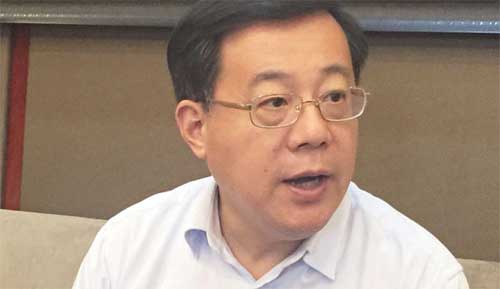|
Director believes robotics is one area where China is capable of taking an international lead
Shang Liqun believes China's high-tech zones have a major role to play in the country emerging as a future global leader in innovation.
The 52-year-old, who is acting leader of Qingdao National High-tech Industrial Zone, one of more than 100 such designated areas across the country, insists they also carry an important responsibility.
 |
|
Shang Liqun, acting leader of Qingdao National High-tech Industrial Zone, says the zone aims to build itself into a blue high-tech zone. Xie Chuanjiao / China Daily
|
"I think high-tech zones will shoulder a very important responsibility in the transformation of China's industry in the future," he says.
"They represent clusters not just of technology but also of talent and capital. Among the high-tech zones around the country, there is a clear common feature and vision, and that is to focus on the development of high-end and emerging industries."
Shang, a charismatic and ebullient figure, was speaking in an anteroom of the Bauhinia Garden Hotel within the Qingdao zone.
He has been deputy director of the zone since 2012 but took over as acting director in April this year when the former director, Chen Fei, was promoted to be mayor of Dezhou, a dynamic city in western Shandong.
He has the role of steering the Qingdao zone, which was set up in 1992 and has a total planned area of 63 sq km with a ranking of ninth in the country's state-level high-tech zones, through the leadership transition.
One of the main aims of the zone is to build on the city's natural strengths as one of China's, and also the world's, leading maritime ports (Qingdao was the world's seventh-largest container port and China's fifth biggest, according to the World Shipping Council in 2013).
One key focus is to specialize in blue high-tech industries such as marine bio-medicine, which is involved in bringing oceanic discoveries into medical practice, and marine engineering equipment research and development.
Almost half of China's marine scientists and marine research institutes are based in Qingdao as well as 70 percent of the total academicians in the marine field at both the Chinese Academy of Sciences and the Chinese Academy of Engineering.
"The zone aims to build itself into a blue high-tech zone, leveraging the advantage of the marine industry in the Shandong Peninsula and seizing the opportunity to build a national demonstration zone in this area," he says.
Qingdao, which was host to the 2008 Olympics sailing regatta, is one of the Chinese mainland's famous holiday resorts with millions of people flocking there every year.
A former German treaty port, it is also where some of China's leading brands are located, including Tsingtao, one of the world's top-10 breweries, and two consumer electronics giants, Haier and Hisense.
|